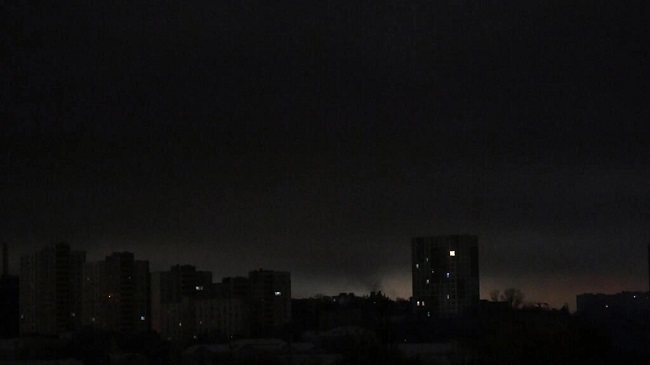Ukraine warns of fresh Russian missile strikes
Ukraine said on Monday that Russia was preparing for a fresh wave of missile attacks on its energy grid that have plunged swathes of the country into the cold and dark.
The warning came as foreign ministers from several European countries, including NATO-hopefuls Finland and Sweden, arrived in Kyiv for unannounced visits in a show of support.
A Ukraine military spokesman said a Russian warship capable of firing cruise missiles had recently deployed to the Black Sea with Kalibr-type missiles on board.
“This indicates that preparations were underway,” said spokeswoman Natalia Gumeniuk.
“It’s quite likely that the beginning of the week will be marked by such an attack,” she added.
With temperatures dipping below zero, repeated Russian attacks have left Ukraine’s energy grid teetering on the brink of collapse and have disrupted power and water supplies to millions over recent weeks.
In its most recent barrage, Russia fired dozens of cruise missiles at targets across Ukraine last week, and an official in Kyiv said Monday that residents in and around the capital were still suffering disruptions as a result.
“Emergency electricity shutdowns are ongoing in the Kyiv region. About 40 percent is currently without power. These are the consequences of the massive rocket attack that happened last week,” governor Oleksiy Kuleba told local media.
President Volodymyr Zelensky cautioned in an address to Ukrainians late on Sunday that Russia was preparing new aerial attacks.
Moscow’s forces would continue the campaign of systematic attacks “for as long as they have missiles”, he said.
Zelensky added that the military was preparing itself, alongside Western allies, who have been delivering new air defence systems to Ukraine.
Russia has said it only targets military-linked infrastructure facilities and blamed the blackouts and their civilian impact on Kyiv’s refusal to negotiate with Moscow.
The Ukraine presidency said Monday that Russian strikes had left four people dead in frontline regions a day earlier.
Prime Minister Denys Shmygal meanwhile announced that he had received the foreign ministers of the three ex-Soviet Baltic states — Latvia, Lithuania, Estonia — as well as those from Finland, Norway, Sweden, Iceland.
He said the country representatives had “discussed the tightening of sanctions, the reconstruction of energy infrastructure and financial support.”
Source: AFP





